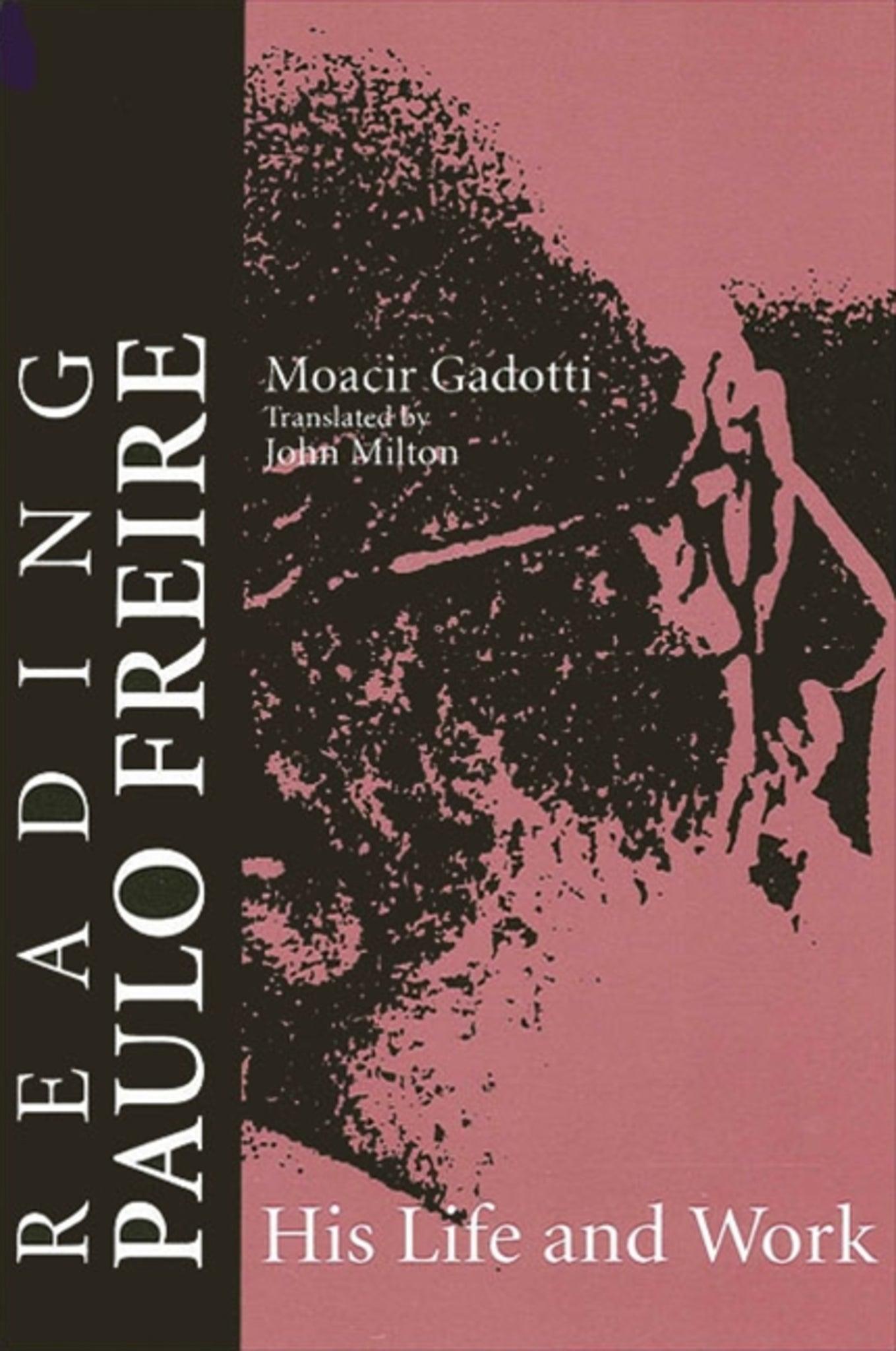We're sorry. An error has occurred
Please cancel or retry.
Reading Paulo Freire

Some error occured while loading the Quick View. Please close the Quick View and try reloading the page.
Couldn't load pickup availability
- Format:
-
01 July 1994

This book was written as Paulo Freire himself would have done it, using a method of learning through victories and defeats in the same way one learns in life. The author follows a chronological line in which life and work are naturally mixed. In many cases, he lets Paulo Freire's work speak for itself.


"This book deals with one of the most important educators of this century. It presents the work and life of Paulo Freire in a simple, straightforward fashion. By placing the life and work of Freire in the context of the history of ideas, the book introduces the reader to the complexities of Freire's pedagogical and epistemological position. The book is accessible, and will be welcome particularly by those who may have difficulties reading Paulo Freire. It does what it promises: makes Paulo Freire available to a wide readership. Likewise, the book discusses a pedagogical approach that is still evolving and has tremendous vibrancy for contemporary research and teaching. Professor Gadotti has captured this dimension in Freire's work better than many other scholars I have read." — Carlos Alberto Torres, UCLA
"The topic is profoundly significant. Educators and intellectuals cannot talk today of literacy and education without reading this piece. The book is important in itself as well as central to educational and literacy studies. This is an important contribution—meaningfully thorough and intellectually stimulating. What I like most about the book is its ability to capture the originality and simultaneous growth in complexity of Paulo Freire's life and work." — Hermán S. García, New Mexico State University
Foreword: A Land of Contrasts and a Pedagogy of Contradiction
by Carlos Alberto Torres
Foreword
by Peter L. McLaren and Henry A. Giroux
Introduction
1. We Can Also Learn in the Shade of the Mangoes
A Teenager Who Considered Himself Ugly
Teaching as a Passion
The Act of Studying
The Act of Knowing
2. The Method Which Took Paulo Freire into Exile
Literacy and Conscientization
The Stages of the Method
Literacy of Children
Basic Readers and Cultural Readers
The Methods Nowadays and Its Reinvention
3. Learning from History
Historical Factors in the Thinking of Paulo Freire
The Military Coup
Exile in Chile
The Main Works of the First Phase of Exile
African Experience
4. A Pedagogy for Liberation
Dialogic Pedagogy
Banking Education and Problematizing Education
Dialogic and Antidialogic Theory
The Directive Role of the Educator
The Intellectual and the Popular Masses
Cultural Action for Freedom
Christian Socialism and Utopia
5. Relearning Brazil
A New Context, New Ideas
Works on Paulo Freire
Paulo Freire Today
6. A Revolutionary Educator
Coherence: Theory and Practice
No Reply is Definitive
The Revolutionary Educator: Patiently Impatient
Pedagogy of Indignation
The "Last" Freire
Paulo Freire as Public Administrator
7. Paulo Freire in the Context of Contemporary Pedagogical Thought
Carl Rogers and Student-Centered Learning
Confrontation with Ivan Illich
John Dewey and the New School
Vygotsky and the Revolutionary Soviet Educators
The Complexity and the Universal Dimension of the Work of Paulo Freire
Critique, Self-Critique, and Dialectic Conception
Conclusion
Epilogue: Education at the End of This Century
Dialogue with Paulo Freire
Notes
Bibliography
Paulo Freire's Main Works (in Chronological Order)
Main Works about Paulo Freire and Other Consulted Works
Index



